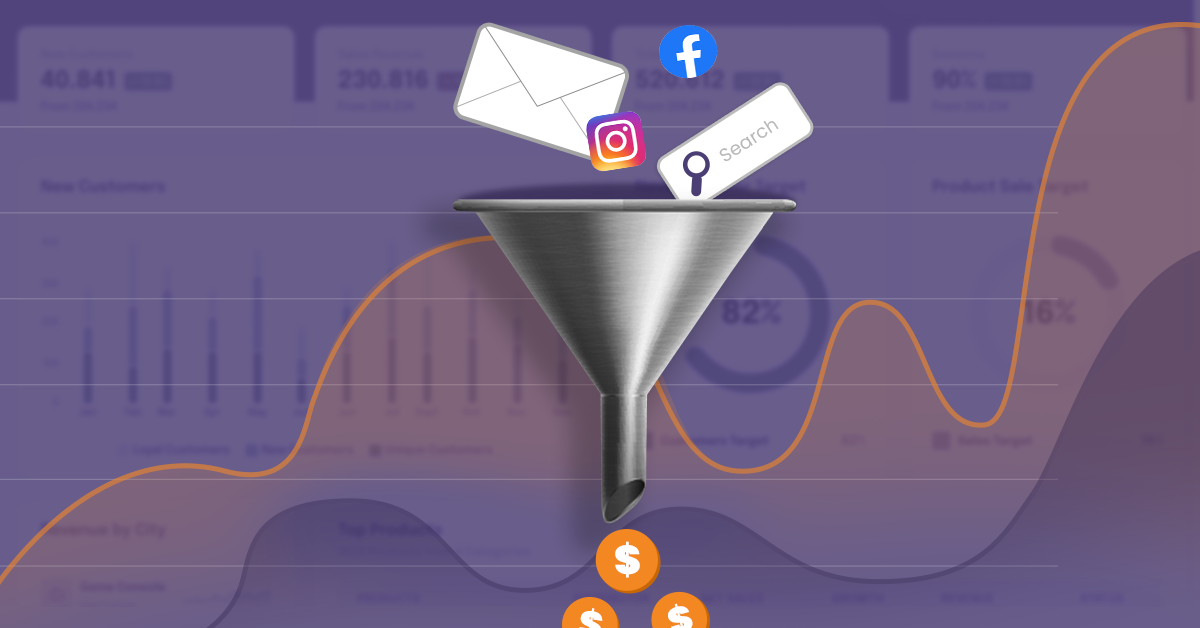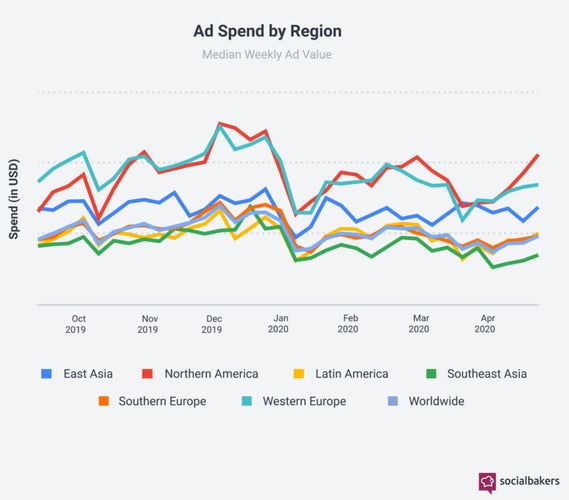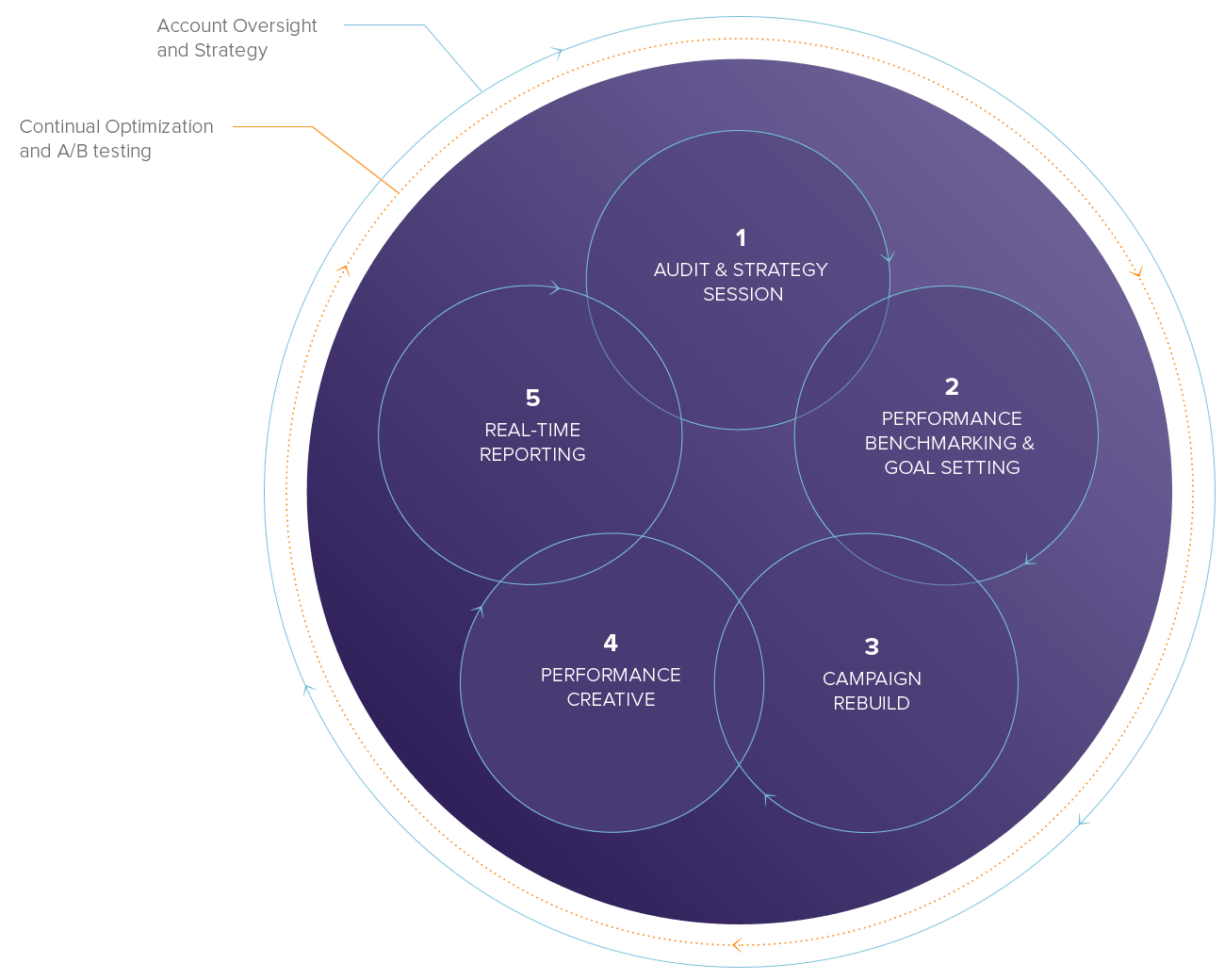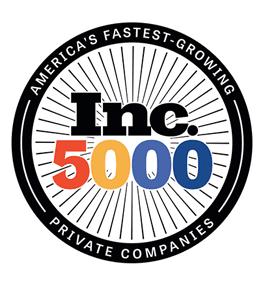What is Performance Marketing?

Performance Marketing Defined, Terms and FAQs
You’ve probably heard the term performance marketing before- but what does it actually mean?
Performance marketing (also known as growth hacking or growth marketing) refers to marketing efforts which aim to achieve a specific, measurable goal. It is distinct from Brand Marketing, which includes marketing efforts that aim to increase awareness. Performance Marketing channels and campaigns typically are measurable using click-tracking methodologies that allow for granular performance measurement, reporting, and optimization.
The objectives of performance marketing can be generating sales, generating leads, increasing website sessions, increasing new users, gaining clicks or followers- essentially, any marketing channel goal.
Who Uses Performance and Growth Marketing?
Who uses performance marketing? All sorts of companies rely on growth hacking/marketing for sales, brand awareness, and more. Primarily, there are two groups that offer this for these companies. These are agencies and various digital media platforms.
Digital Media Platforms
First, all performance marketers work, whether they’re in-house or via an agency, with digital media platforms. These platforms range from search engines like Google, where you’ll have the option to create text-based search or display ads via Google Ads, to social media platforms like Facebook, which allow you to target their user base via ads created in-app, using creative imagery you personally provide.
A third, less-known category are third-party native advertising platforms like Taboola, which allow you to display ads on other sites in a way that is supposed to blend seamlessly with the site experience (not always successfully, in fact, but native ads are about 53% more likely to see clicks than a regular display ad).
Performance Marketing Agencies
As the above paragraph demonstrates, you can choose to navigate this world on your own, but many companies turn to performance marketing agencies to help them create effective marketing campaigns.
Each platform is different, and the investment in a performance marketing agency (or an agency that includes performance marketing) can greatly cut down on man hours spent trying to decipher the rules of these disparate ad platforms.

The Benefits of Performance Marketing
Highly-targeted ads are more likely to reach your ideal customers or audience more quickly than traditional ‘spray and pray’ type digital marketing.
Performance marketing platforms also allow for continuous feedback- if your ads perform poorly, they are displayed less, so good marketers are carefully attuned to the display rate (and the conditions affecting it) and are able to pivot and redesign ads to avoid pitfalls and capitalize on unexpected success.
What Types of Performance Marketing Channels Are There?
Several different types of performance marketing channels exist. Below, we’ll touch on each with a brief explanation.
Search Engine Marketing
When it comes to search engine marketing, also known as pay-per-click (PPC), Google Ads is king, though other search engines offer similar ad options. With Google ads, you can build text-only search and display ads- these ads use keywords that then allow them to be pulled up during a search.
For example, you may bid on the keywords “garden hose” for your ad selling garden supplies. When someone searches garden hose, your ad may appear in their search results (this is affected by the amount of your bid and the popularity of the search term).
Social Media Advertising
Social media advertising refers to any ads created for display on social media- typically, these ads are created in-app, using say, Facebook’s Ads Manager platform (to use the most popular example).
Social sites which offer advertising opportunities include TikTok, Instagram, Facebook, Snapchat and Twitter. These ads can be traditional display type ads (typically displaying only on a specific social site), or as boosted posts.
Affiliate Marketing
Affiliate marketing refers to a third party marketer that advertises on behalf of your company, typically with goals like driving traffic and sales.
They can manage all aspects of ad creation, and will typically take commission on actions taken, such as leads, conversions and clicks. They can be everything from affiliate marketing companies to individual figures, like bloggers.
Native Advertising
Native advertising refers to a type of ad that looks “native”, in other words, like it is a part of the site it is displayed on. These can look like “Best Products to Buy on Amazon” type lists you may see on sites like Buzzfeed. They are particularly helpful for companies selling goods who have had less than stellar success with social or display ads.
Sponsored Content
Sponsored content is best described as content, usually long form and sometimes created by an influential figure of some sort (journalist, thought leader, artist, etc.) that is displayed across various sites to draw interest and leads.
Examples include paid video ads (like Youtube ‘Unboxing’ videos), paid articles, and even boosted posts on social media.
Performance Marketing Terms and Metrics
There are dozens of performance marketing terms (we’ve touched on the fact that it’s sometimes also called growth marketing or growth hacking already), but we’re going to focus on some of the big ones here. These include:
CPC: Cost-per-click. This is the cost, per click, on your ads, and is a common metric for success, especially in performance marketing; you aren’t paying for the creation of the ad, but for the clicks it receives.
CTR: Click-through-rate. This refers to how many people who see your add that then follow through and click on it.
LTV: Lifetime value. LTV gauges expected spend of acquired customers based on their activity using predictive analytics.
Conversions: Conversions are the completed action goal of a campaign- for example, let’s say 130 people signed up for your newsletter (your action goal). That means you’ve had 130 conversions.
CPL: Cost-per-lead. Refers to the cumulative bid cost behind a successfully obtained lead.
CPS: Cost-per-sale. The cumulative bid cost behind a successful sale.
CPM: Cost-per-mille. This is an older form of performance marketing wherein you pay per every 1,000 impressions (mille).
CPA: Cost-per-action. If you have a goal like say, downloading a white paper, then you may rely on this metric, which lets you know the cumulative bid cost behind a successfully taken action- such as downloading said white paper.
CPV: Cost-per-view. This refers to video marketing in particular; in this instance, you pay per view on your ad.
SEM: Search engine marketing. This refers to any and all marketing that occurs through search engines. You may hear it used in tandem with the phrase SEO (search engine optimization), which refers to strategies used to pull sites up in search engine rankings and in increase ad display within search engines.
Performance Marketing Trends & How to Get the Most out of It
At present, as much as 62% of all digital marketing is performance based marketing. While standbys are unlikely to go away (think still image and text ads), video has become increasingly effective and popular. Learn what’s ahead for performance marketing here.
Getting the most out of your performance marketing comes down to a few key points:
- Diversify. Having multiple marketing avenues allows you to pivot when one doesn’t pan out as planned.
- Experiment- with patience and proper data! Good habits allow you to make minor adjustments with, at times, big pay-off, but it takes time for you (or your agency) to truly parse analytics and make the sort of methodical improvements that lead to long-term success.
- Listen. Listen to the guidance of your team! They may have valuable input on everything from ad creative to your website’s UX. Remember that marketing is a system and all parts must be functioning properly for truly effective advertising.
Is it for You?
A successful performance marketing ecosystem can deliver tremendous ROI to companies, allowing you to penetrate into markets you sometimes didn’t even know existed! Read on for some of the top performance marketing frequently asked questions (FAQs) and their answers.
Performance Marketing FAQs:
What is performance marketing?
Performance marketing (also known as growth hacking or growth marketing) refers to marketing efforts which aim to achieve a specific, measurable goal. It is distinct from Brand Marketing, which includes marketing efforts that aim to increase awareness. Performance Marketing channels and campaigns typically are measurable using click-tracking methodologies that allow for granular performance measurement, reporting, and optimization.
Who benefits most from performance marketing?
Companies attempting to limit marketing costs often find that performance marketing gives them a significant advantage.
Who provides performance marketing?
Both agencies and digital advertising platforms like Facebook and Instagram provide options.
How can I measure the success of performance marketing?
There are many metrics to measure performance marketing success, but they don’t differ much from other KPIS- they include standbys like engagement, lead generation, and impressions.











